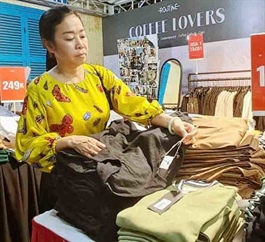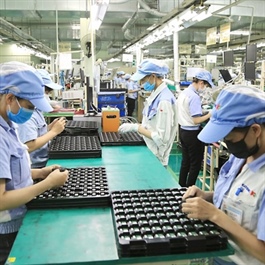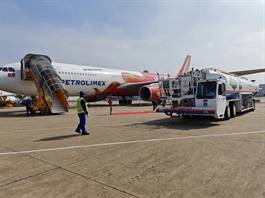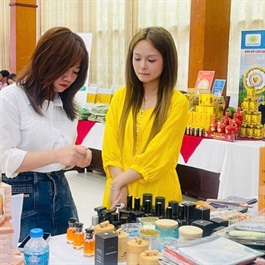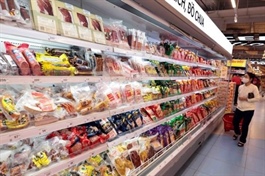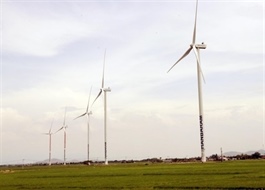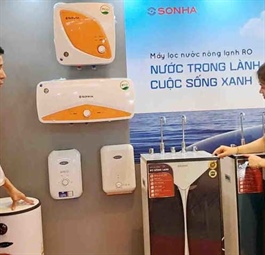Việt Nam sees potential for medicinal herb ecotourism
Việt Nam sees potential for medicinal herb ecotourism
Experts have pointed out the significant untapped potential for combining cultivation of medicinal herbs with ecotourism in Việt Nam, thanks to the country’s rich diversity of medicinal resources.
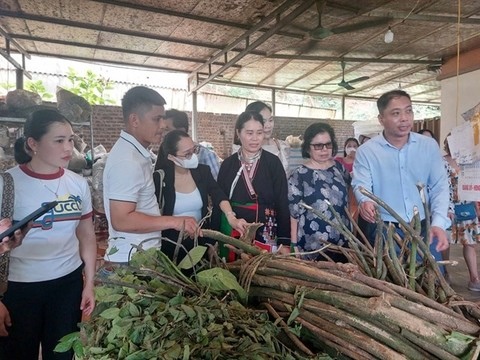
A medicinal herb field in Lào Cai Province's Bắc Hà District. — Photo suckhoedoisong.vn |
Việt Nam is home to more than 5,110 species and subspecies of medicinal plants, used for health and healing purposes. Some of the most valuable and rare medicinal plants, including Lai Châu ginseng, Vũ Diệp ginseng, Hoàng Liên ô rô (Mahonia Bealei Pynaert), and Hoàng Liên gai (Berberis Wallichiana), are found in the country’s natural forest ecosystems.
Several localities have successfully combined medicinal herb cultivation with forestry development and ecotourism. The northern mountainous province of Lai Châu, in particular, is leading the way. The province boasts around 473,000 hectares of forest, with a coverage rate of 51.87 per cent of its area, offering great potential for sustainable economic development under the forest canopy.
In Lai Châu, some rural tourism models have been practised, allowing visitors to participate in traditional farming activities such as growing cardamom with the Mông ethnic people or cultivating medicinal herbs with the ethnic Dao. These experiences give tourists insight into the culture and livelihoods of ethnic minorities while offering them wellness tourism experiences.
Hoàng Quốc Việt from the Lai Châu PU Trading and Travel Co says that there is increasing demand for wellness and cultural tourism. Tourists can enjoy local cuisine, witness medicinal plant farming, and explore the unique cultural heritage of the region.
Learning from other countries

Tourists are introduced to traditional medicinal plants during their trip to Hợp Sơn Village, Ba Vì Commune on the outskirts of Hà Nội. — Photo baotintuc.vn |
Lê Minh Tuấn from the University of Economics and Business at Việt Nam National University suggests that Việt Nam could benefit from studying the experience of countries like Japan and South Korea, which have successfully developed ecotourism linked to herbal medicine development.
In Japan, the government has supportive policies for researching natural medicinal products and facilitated collaboration between local communities and businesses to create sustainable ecotourism. This approach has helped conserve natural resources while promoting tourism.
South Korea has also encouraged community participation in developing medicinal herb-related tourism products, while focusing on improving product quality through certification and quality control programmes.
Tuấn proposes some strategies for Việt Nam to replicate these successes. Localities should focus on cultivating unique medicinal herbs that are well-suited to the local climate and soil conditions, with an emphasis on deep processing to add value.
Businesses and households involved in medicinal herb production should assess market demand and collaborate on product development. Moreover, creating new tourism products rooted in local cultural values could draw in more visitors and provide an economic boost for local communities.
Standards for both medicinal products and tourism services should also be established to ensure quality, safety, and consistency. This system should prioritise the preservation of local culture while promoting sustainability and scalability to meet both domestic and international demand.
Tuấn further emphasises the importance of hiring expert groups to guide the development of these models and adjust local planning as needed. This approach will help preserve the unique identity of each locality while ensuring professional support throughout the project’s implementation.
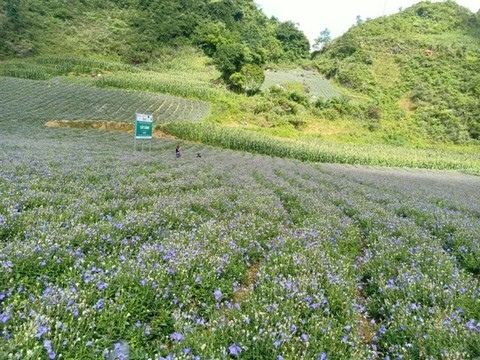
Tourists experience a foot bath with sea salt and medicinal herbs in HCM City. — Photo vtv.vn |
He also emphasises the importance of creating new products and services in the tourism sector, focusing on doing business based on local cultural values, while building cultural spaces and wellness services suitable to the characteristics of each region.
The system needs to consider preserving local culture, sustainability, and scalability to create high-value-added tourism products and experiences that meet the needs of domestic and international markets, Tuấn says.
At the same time, localities should also offer incentives, typically in taxes, promotion campaigns and cooperation programmes, to encourage travel firms to prioritise the consumption of products developed by local people.
They should also pay more attention to improving infrastructure in cultural tourism villages, including better roads, electricity, clean water, and information technology, he adds.



